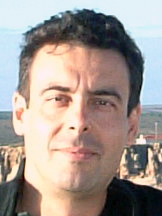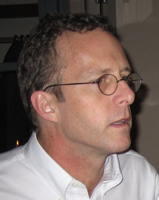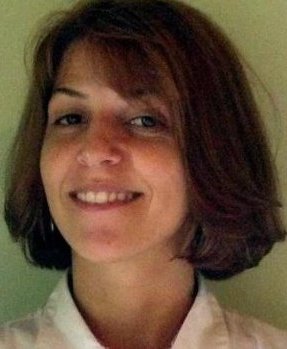Keynotes
  
 
MIKE CHRISTEL
Teaching Professor, Entertainment Technology Center (ETC)
Carnegie Mellon University, Pittsburgh (USA) 
Title: "Multimedia: from Information Source to Components of Transformational Games"  
Abstract:
Mike Christel will discuss his journey with multimedia research over the past six years, taking him from Carnegie Mellon University's Computer Science Department into the Entertainment Technology Center (ETC).  The story begins with the use of speech recognition, image processing, and language technologies to automatically process large video corpora.  Such processing facilitates more efficient retrieval.  As demonstrated by top scores in the international TRECVID benchmarking forum, Christel's CMU Informedia research group has experienced success in finding relevant video shots quickly from large masses of material.  The emphasis is on leveraging the intelligence of a human user in the interactive retrieval loop, with lessons shared in visual analytics papers.
That work drew the attention of oral historians, who amassed large quantities of video stories that were not easily accessible.  The value of synchronized metadata to open up these collections for the web audience will be detailed with examples.  This work illustrates the power of multimedia processing to help organize and present cultural repositories.  As the user community appreciated the layers of meaning within these often riveting stories, Christel was drawn to the power of multimedia elements in entertainment technologies, including games.
Transformational games are designed to change the player in some way, such as improving health habits, changing attitudes, or providing education.  The ETC provides multidisciplinary teams of graduate students with skills in visual arts, design, sound, programming, and production the opportunity to create such games in the course of a semester-long project.  Christel will briefly overview this development process, and then demonstrate some of the ETC-produced games, illustrating the role of multimedia elements within them and the promise of the work to positively affect the game player.
Speaker Bio
Dr. Mike Christel received his Ph.D. from Georgia Tech in 1991, with a thesis examining digital video interfaces for training software engineers about code inspections. He graduated "summa cum laude" with a B.Sc in Mathematics and Computer Science from Canisius College in 1983.  He joined the faculty at the Entertainment Technology Center (ETC) from Carnegie Mellon University in September 2008, moving from the Computer Science Department where he has been since 1997 working at the intersection of speech recognition, image processing, and multimedia interface development and evaluation. From 1987 to 1997 he worked at the Software Engineering Institute at Carnegie Mellon University investigating multimedia management of the requirements elicitation process, and multimedia for interactive software engineering educational experiences.
Dr. Mike Christel is a founding member of the Informedia research team at Carnegie Mellon University designing, deploying, and evaluating video analysis and retrieval systems for use in education, health care, and understanding of human activity. His research interests focus on the convergence of multimedia processing, information visualization, and digital library research. He has worked with digital video since its inception in 1987 and received his PhD from Georgia Tech in 1991. Whereas his Informedia work has focused on multimedia for information and communication, the ETC offers broad opportunities to explore multimedia for engagement and edutainment.
 
  
 
KHAI N. TRUONG
Associate Professor
Department of Software and Information Systems
The University of North Carolina at Charlotte (USA) 
Title: "Extracting Context from the Web to Help Visually Impaired Pedestrians Develop Cognitive Maps of Their Environments"  
Abstract:
A rich cognitive map of an environment can enhance an individual’s experience within the space. However, acquiring knowledge about an environment can be challenging for people with visual impairments. They often need support by sighted people to understand what is in the environment, associate meaning to these objects and places, identify where different objects and places are positioned, and their spatial relationship with each other. In this talk, I will present how the power of the Web can be leveraged in ubiquitous computing tools to help a user learn an environment. I will discuss what information is required by visually impaired pedestrians, when and where to provide this information, and also how to collect and present it. Finally, I will describe how this work can be extended to benefit the general population.
Speaker Bio
Khai N. Truong is an associate professor in the Department of Software and Information Systems at the University of North Carolina, Charlotte. His research lies at the intersection of Human-Computer Interaction (HCI) and Ubiquitous Computing (UbiComp), specifically examining the mutual impact of usability and technical constraints on the design of applications and interaction techniques for novel, off-the-desktop computing systems that may be commonplace in 5-10 years. He received his PhD in computer science from the Georgia Institute of Technology.
  
 
NUNO CORREIA
Professor
Computer Science Department, Faculty of Sciences and Technology
New University of Lisbon (Portugal) 
Title: Designing and Developing Interactive Multimedia Systems   
Abstract:
This talk presents the design and development process of interactive multimedia and multimodal systems used in diverse environments. The technologies, including new sensors, interaction surfaces and semantic information processing techniques will be described in the context where they were used. The systems result from collaborative projects in several fields, ranging from cultural heritage to contemporary art and dance. The dialogue with stakeholders from different areas and the impact on the resulting outcomes will be discussed, along with the process of setting up, specifying and developing interdisciplinary projects and the methodologies that are used. Recent work on motion annotation to help choreographic work, image analysis of paintings and digital art projects (e.g., TimeMachine) will be described. The academic and research environment and programs in which this work is done will also be presented.
Speaker Bio
Nuno Correia is a Professor at Computer Science Department, Faculdade de Ciências e Tecnologia, Universidade Nova de Lisboa, Portugal, where he teaches in the areas of Multimedia and Interaction. He participated in the creation of a Digital Media Ph.D. program that he coordinates at FCT/UNL and currently he also coordinates the Ph.D. program in Computer Science. He created and leads a research group (IMG - Interactive Multimedia Group) of CITI (Research Center for Informatics and Information Technologies). He was responsible for the Eurographics Multimedia working group from 1999 until 2007 and he is coordinator of the Multimodal Systems area of CITI. He is national representative in IFIP TC14 (Entertainment Computing). Nuno Correia participated in several national and European projects. He was a researcher at Interval Research Corporation, Palo Alto, California, in 1996/97. Previously, he was a researcher at INESC, Lisbon, Portugal. Since March 2007, he is National co-director of the Digital Media area in the UT Austin-Portugal program. Nuno Correia supervised 4 doctoral theses and about 30 masters theses already completed and currently supervises several doctoral and master dissertations. He is author or co-author of more than 90 publications in journals, conferences and books and he was Program Chair of MobileHCI 2010 and Co-Chair of ACE 2011.
  
 
ETHAN MUNSON
Professor and Co-Chair
Department of Electrical Engineering and Computer Science
University of Wisconsin-Milwaukee (USA) 
Title: Collaborative Authoring Requires Advanced Change Management  
Abstract:
Collaborative document authoring is a pervasive activity of modern life. It extends far beyond simple joint authorship to many forms of shared document work, including laws, patient charts, and the editing process. Software engineering is also a form of collaborative authoring, and in general, the software engineers have the best tools for managing collaborative changes, such as version control and build systems. It is the thesis of this talk that collaborating authors of natural language documents need the same kinds of tools that software engineers take for granted. In fact, because of important domain differences, people collaborating on a natural language documents need better tools than software engineers. The document engineering research community has been working on this problem domain for a considerable time, particularly in the area of version control of XML documents, which is the primary representation for modern office documents. Key research results have included a variety of schemes for merging and patching XML document versions, advances in formalizing document deltas, a scheme for controlling author access to the various sections of a document, and demonstrations that authors can edit a document simultaneously over the Internet without locking mechanisms. I will argue that document systems must adopt the full range of version management tools used by software engineer, including full branch-and-merge versioning, but then must extend those tools and simplify their use. We need approaches to sharing documents and merging their changes that are highly automated, that recognize the difference between formatting and content, that permit fine-grained access control, and that help users understand the provenance of changes so that responsibility is correctly assigned. I will show how my laboratory's work on Version-Aware Documents is addressing these issues and describe a longer term vision requiring further research. I will also suggest how the same techniques might impact other domains including medical informatics, eGovernment, and document analysis.
Speaker Bio
Ethan V. Munson is Professor and Co-Chair for Computer Science in the Dept. of EECS at the University of Wisconsin-Milwaukee. He received a Ph.D. in Computer Science from the University of California, Berkeley in 1994. He also holds the MS in Computer Science (UC Berkeley, 1989) and Bachelors degrees in Computer Science (UCSD, 1986) and Psychology (UCSD, 1978). Dr. Munson’s research has focused on tools for managing software documents (style sheets, program editors, version control, and build systems) and on human-computer interaction (programming interfaces and system latency). Dr. Munson is a recipient of a National Science Foundation CAREER award, several research grants from industry, and four NSF educational grants. He is active in conference organization, especially with the ACM Symposium on Document Engineering, and was Chair of ACM SIGWEB from 2006 to 2011.
  
 
YASODARA C√ďRDOVA
Developer Relations W3C Brazil
Co-chair: Working Group on Best practices for Data on the Web (W3C Brazil) 
Title: O potencial das API's para a interação com o usuário: o domínio de interação do W3C (portuguese)  
Abstract (portuguese):
A palestrante pretende fazer um apanhado com as ultimas novidades em desenvolvimento no √Ęmbito do W3C, do dom√≠nio de intera√ß√£o e nas tecnologias OpenWeb do cons√≥rcio. O objetivo da palestra √© mostrar o potencial de intera√ß√£o proporcionado pela plataforma Web.
Speaker Bio (portuguese)
Conhecida como Yaso, √© designer de interfaces e se juntou W3C Escrit√≥rio Brasil, em maio de 2013. Est√° envolvida principalmente com o LabWeb, desenvolvimento e alguns dos projetos da plataforma da OpenWeb. √Č co-chair do Working Group de Best practices for Data on the Web do W3C.
Se formou em Design pela Universidade de Brasília e Pós-Graduado em Gestão de Marketing. Antes de trabalhar na W3C Brasil, ela trabalhou como consultora técnica em diversos projetos de inovação digital.
